
Sep 8, 2020
I moved into a Senior Living facility in downtown Minneapolis last year. Our first six months worked out pretty much according to our plan. The apartment was beautiful, the programming was more than we had hoped for, and the other residents were really nice and interesting people. During that time, I had a mix of recreational activities and some work.
Then the pandemic hit. This was not what we hoped for. The apartment and the other residents were both still great. But we couldn’t visit with residents and the programming stopped, although it has restarted mostly through Zoom. This left me with more time on my hands than I had anticipated.
It became clear quickly that:
- we were not going back to “normal” anytime soon no matter how much I hoped that we would
- I couldn’t fix the Covid problem myself
- I didn’t know how long the situation would last
So, what could I hope for now? I concluded that the best outcome, under the circumstances, was to use my “extra” time as effectively as I could. So here is what I did:
- I worked more on my business than I thought I would, developing a course on life-purpose as my first venture.
- I spent more quality time with my wife. I have enjoyed that a lot.
- I Zoomed with friends and relatives who live all over.
- I even developed relationships with strangers on LinkedIn.
I won’t say that I have made lemonade out of lemons. But I am doing activities that I love with people I love. I hope that the pandemic will end soon. But in the meantime, I will continue to meet the challenges and take advantage of the opportunities provided by the pandemic.
How are you using your hope to thrive in the time of pandemic?
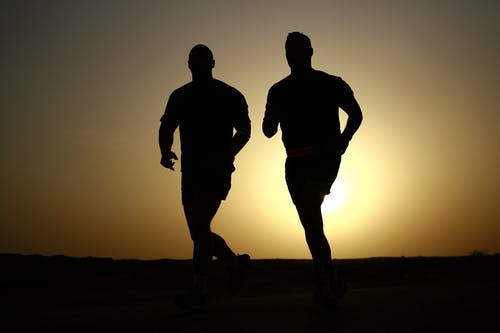
Sep 1, 2020
So many aspects of my life are uncertain now – work, money, health, politics, and justice. We have evolved to sense danger, so my mind and body are on high alert. It is as if a saber-toothed tiger were around the corner and I need to be prepared to fight or flee.
Having chronic high levels of adrenaline and cortisol increase anxiety and can lead to weight gain, headaches, and insomnia. Sound familiar? Also increase blood pressure and can lead to many other problems.
When I was free to travel, I could feel the anxiety and stress drain from my body over the first few days on vacation. But if I started to strategize about work, I would feel the stress coming back.
Here are a few strategies I use now take a break from the stress:
- Exercising outdoors. I bicycle and feel better. I’m sure that other aerobic exercises would have the same effect.
- Deep breathing. Taking a few deep breaths helps, like when I get up in the morning or I’ve been sitting in front of a computer screen for long periods of time.
- They help restore my depleted energy, which comes partly from the stress. I like the 15-20-minute variety of these. One such nap can leave me alert for many hours.
- I find that pausing before making a decision, instead of reacting immediately and instinctively, empowers me.
- Meditation and yoga. Unfortunately, I fall asleep when I try to meditate. And I have not found the right kind of yoga that doesn’t do my body in. But many people report that either of these can be wonderful for reducing stress.
What strategies do you use to manage your pandemic stress?
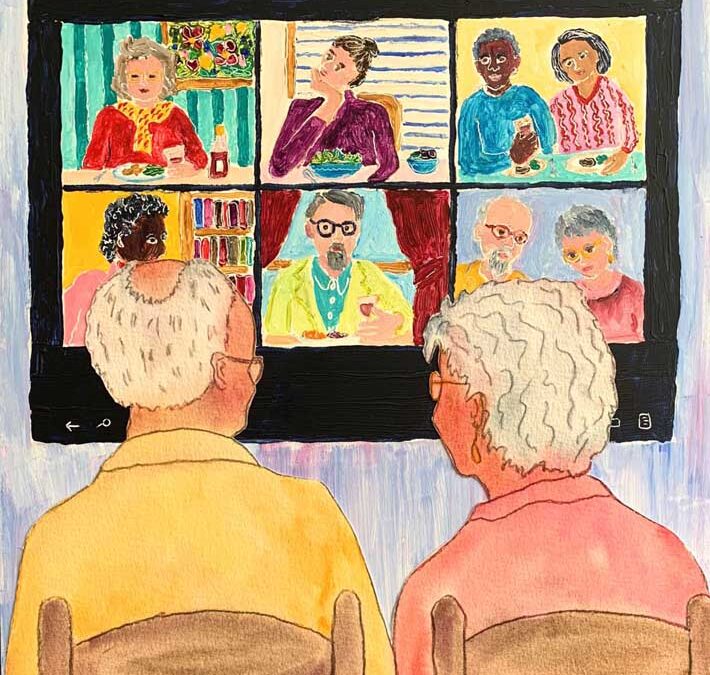
Aug 25, 2020
I used to complain about Zoom. I felt it was a poor substitute for face-to-face interactions with others. Since the pandemic, I’ve especially missed the in-person hugs from the people I feel closest to.
No more. My attitude has changed as I have gotten used it. Here are just a few of its features that I have grown to love:
- I can have a conversation with any reasonable number of people anywhere in the world. At no cost. My world has shrunk in a good way.
- I can see the expressions on people’s faces as I communicate with them.
- I can turn off my video and still participate in a call if I do not want others to see that I’m eating or doing something else.
- When I do research over Zoom, I can record a call, with permission, and transcribe it using other software.
Zoom is not the only way I communicate with other people in addition to in-person meetings. I use the mail (US Postal Service), email, phone, and social media. Each has its own advantages and limitations.
As each communication method has become available, it did not replace the older technologies but instead added to them, just as television didn’t replace radio. For each of them, I learned how to use them and also the etiquette involved.
I am not an early adaptor of technologies. I often fight with a new technology and feel frustrated until I’m able to master it. My original complaints about Zoom had more to do with having to learn a new technology and less to do with its limitations.
Now I am “cool” with Zoom and have learned to love it. It would be difficult to live without it.
What is your relationship with Zoom?
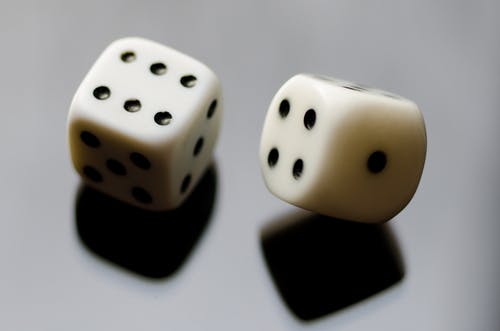
Aug 18, 2020
When considering an activity, I estimate the possible benefit and the cost of the activity. But before I make a decision, I also need to take into account the odds that it will pay off.
For example, a lottery ticket is cheap, so that there is very little money at risk. The payoff can be huge. However, the odds of winning are so low that states and casinos make lots of money from their sale.
I play the odds during the pandemic. Because of my age and health, I am at high risk of a serious case of Covid-19 if I come down with it. When I weigh that against the benefit of an action, I am always estimating the odds of being exposed.
The virus is spread through the air. My understanding is that in order to contract the disease I need to inhale 50,000 Covid-19 virus particles. Indoors, that is way more likely – virus particles can accumulate in an enclosed space.
I know that the mask I wear protects others but not me. So, the odds of contracting the virus go way up if others around me are not wearing masks, particularly indoors. And the closer they are, with or without masks, the more likely I will be exposed. There are no guarantees.
There are so many questions. Can I get together with my friends? Is it okay if we meet outdoors? What about shopping at stores? It can be easier, more efficient, cheaper, and more fun than shopping over the internet and having it delivered. But not everyone at the store wears a mask. It is unlikely that I will catch the virus on any one visit, but multiple visits increase the odds of a seriously bad outcome.
When making decisions, it is important to take all three of these into account: the costs of your actions, the benefits to you, but also the odds that the benefits you expect will actually happen and the risks will be avoided. Even if a bad outcome is unlikely, if you repeat the action enough, the odds of the bad outcome can increase substantially.
What do you do about the odds of a favorable outcome when you are making a decision?
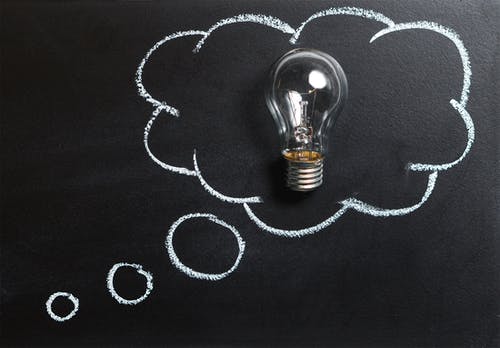
Aug 11, 2020
Some of my friends ask me why I don’t have more leisure and am working so hard in my retirement. Here’s the story.
I retired last December. For 34 years I was a financial planner, advising my clients on their investments and their lives. When we discussed their non-investment challenges, our conversations focused on family, health and work issues. In fact, my book Serious About Retiring, includes those topics.
After I retired, I decided to learn more about the non-financial challenges of retirement. I read books on the subject, attended webinars, took courses, and talked with others. I have learned that many retirees are not fully engaged. They don’t have activities that provide a sense of purpose in their lives.
As I continued my research on this topic, I became more and more excited. Helping pre-retirees and new retirees has become a major focus of my own retirement life. It is my next vision.
My research has culminated in my developing a new course. The course will encourage my students to connect with their values, find their purpose, and move towards a Next Stage with engagement and fulfillment. I can’t wait to try out my ideas. But that will be another story.
Have you found absorbing activities during the pandemic?
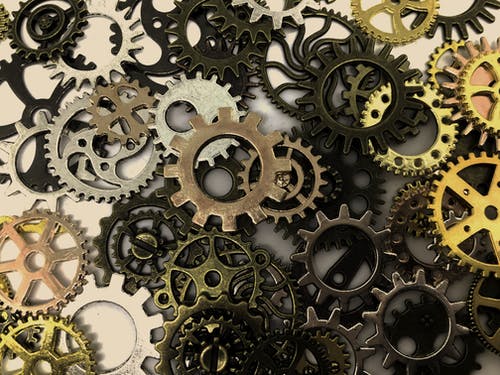
Aug 4, 2020
I didn’t wake up this morning wanting to know all about how a virus works. But I opened the newspaper and got pulled into the topic. I enjoy learning about almost any topic. But this feels different – it is thrust upon me by necessity.
Something so esoteric as viruses, which are invisible to the naked eye, has become a need-to-know. There are definite limits to what I can learn from the news, which describe more about what is happening. Sometimes news articles also explain the how or why, and these are helpful.
I like to put facts into the context of the big picture. But in these specialized areas I don’t always know what questions to ask. I don’t know what I don’t know.
Visuals help. I saw a video that used lasers to light up both large and micro particles emitted from coughing and breathing. It was clear that larger particles fall quickly to the ground, but that microparticles hover and accumulate in an enclosed area. Moving air currents disperse particles. The video made the invisible visible and gave me a visceral understanding of what is going on.
I bump into technical bodies of knowledge frequently. Usually, I can ignore them and let the experts deal with them. If I am curious enough, I have “Uncle Google” and Wikipedia to help me understand.
There are so many areas, including medicine, law, and technology, where I am not an expert. In many situations I must decide how much I need to educate myself – because I am ultimately responsible for making decisions that will affect my life and well-being.
I especially appreciate and admire the expertise of professionals whom I can talk with personally. These days it’s great to have friends who are experts.
How do you decide how much you need to know to make good decisions?






